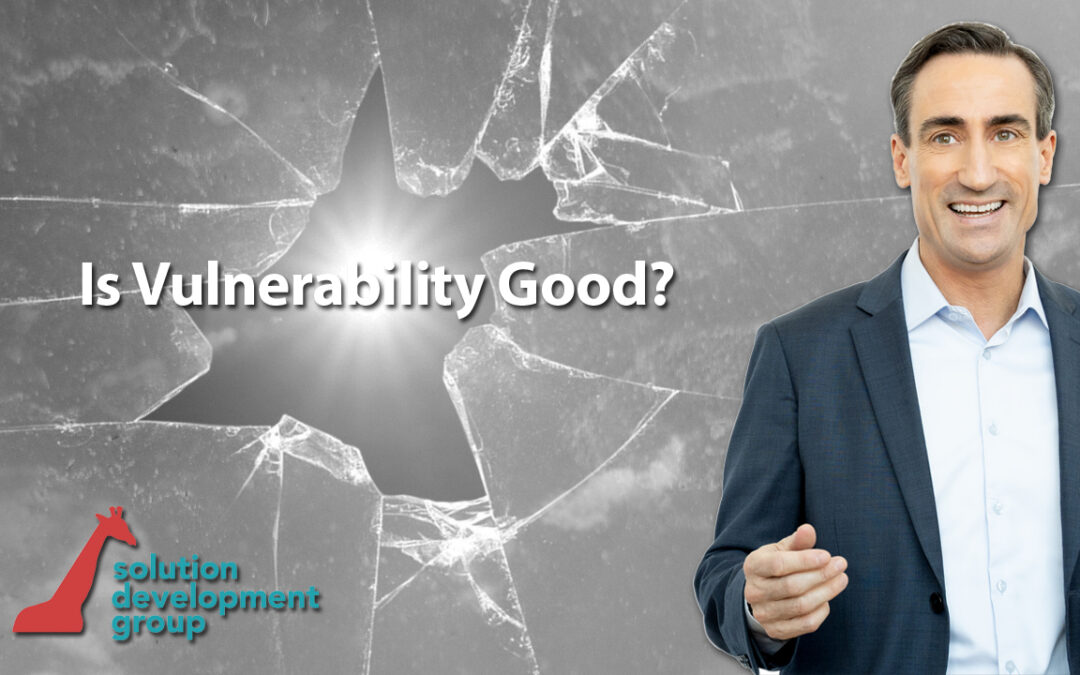Recent events have left a lot of us feeling a bit raw and uncertain.
But, if you were to look at social media, a lot of people seem to be doing all right. They’re making sourdough, learning new languages, taking on fitness challenges, and launching businesses.
But if you look closer or go deeper, it’s obvious that many people aren’t doing as well as they might say they’re doing.
And certainly, we’re all under a lot of stress and keeping a stiff upper lip seems to serve a certain purpose. It gets things done.
Perhaps by toughing it out, we feel it takes us closer to our goals.
But – do we want people to know we’re toughing it out? How willing are we to show our struggle to get to where we’re going? In other words, are we sure that showing our vulnerability is a good idea?
Is being vulnerable a good thing?
I recently delivered my Strengthen Your Resilience session to a new client group and had a surprising revelation.
I met with this group and we covered the several critical topics as they relate to resilience. We discussed emotional intelligence, being more self-aware, and the ability to reflect on how we feel both emotionally and physically. I also talked about mindfulness and meditation and how those feed into our ability to be resilient. We talked about gratitude and what the research shows around that.
Up until this point, it was business as usual – a successful session.
But an interesting thing happened at the end of the discussion, which I usually open up for general comments and questions.
This particular group started sharing their struggles. Many individuals were facing some very personal challenges, particularly within the pandemic, but also in general. They recounted their difficulties in life, relationships, and with children.
Some of them were separated from family and experiencing intense loneliness. Some of them were relatively new to living in Canada, and were feeling like fish out of water.
Not going to lie – it got real.
What struck me was that I had only just met this group. We barely knew each other.
And yet, they were willing to be incredibly vulnerable by sharing their experiences with me. I was kind of taken aback.
Speaker, author, and professor Brené Brown, who has done tons of research on vulnerability, talks and writes a great deal about this. She talks about vulnerability as being an uncertainty, a risk, and an emotional exposure.
This is exactly what happened with my group session on that particular day.
And I noticed a few things that came out of the experience.
The first thing I noticed was how when we are more open and vulnerable, we feel more connected. Vulnerability cultivates trust. It made our session more interesting and enjoyable.
Also, the learning was greater for everybody – not just for my attendees, but for myself as well.
(That’s right – the teacher is still learning.)
And that was the second part of my realization. I had to ask myself, “Why doesn’t this happen more often? How vulnerable am I, truly?”
Vulnerability is something I’ve worked on for years and, if I were to be completely honest, it’s not something that comes easily to me. Not that being a male lets me get away with it as an excuse, but I wasn’t socialized or raised in a way that encouraged me to be vulnerable.
I’ve been actively working on my relationships and family for about 10-15 years now, and I can recount when I’ve pushed myself to the edge with my vulnerability, and even moved that edge, and when I’ve backed off and when I’ve chosen to extend it.
And that’s when it hit me.
Vulnerability is a choice.
It’s a choice we can consciously make when we honestly want deeper relationships. If we truly want more openness and connectedness, the kind that brings on stronger relationships, we can choose to be vulnerable.
But we often don’t choose it because – like most things that help us grow – it’s hard.
Really hard.
Brené Brown delves extensively into this – vulnerability is at the core of dark emotions. It requires embracing your darkness. But at the same time, vulnerability is the birthplace of positive emotions. Take that in, vulnerability is the birthplace of positive emotions as well.
Those positive emotions, such as love, belonging, joy, and empathy – these are the emotions that we can manifest by being open and vulnerable.
So, to recap…
Vulnerability is the path to deeper and more meaningful relationships, and the happiness we crave. It’s hard, but it’s a choice.
The next time you face this choice, remind yourself that you get to decide, if it’s worth it, and consider what you stand to gain. Then you’ll be better equipped to move forward.
If you’re interested in learning more around strengthening your resilience, please check out solutiondevelopmentgroup.com/resilience,


Recent Comments